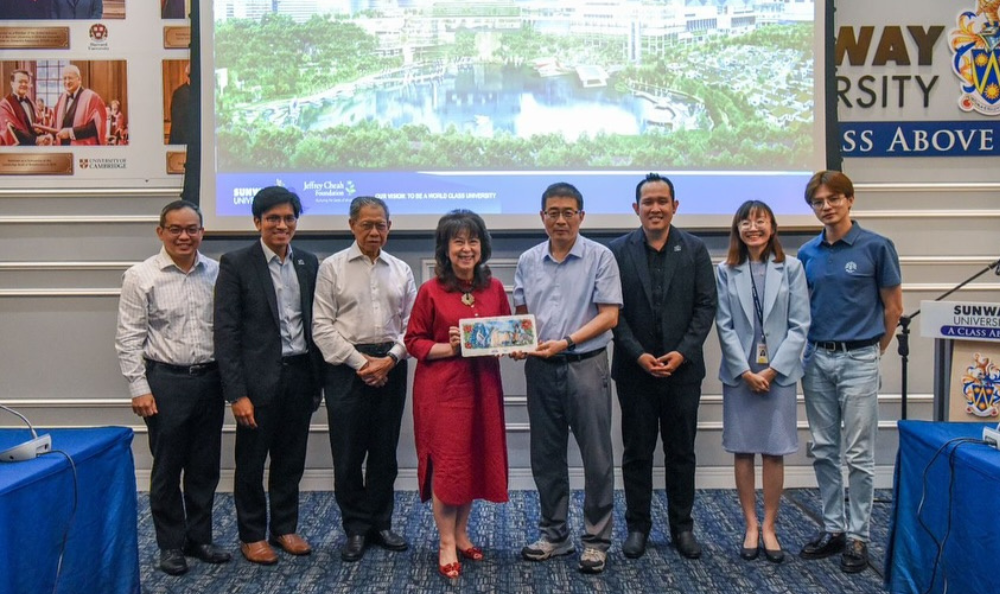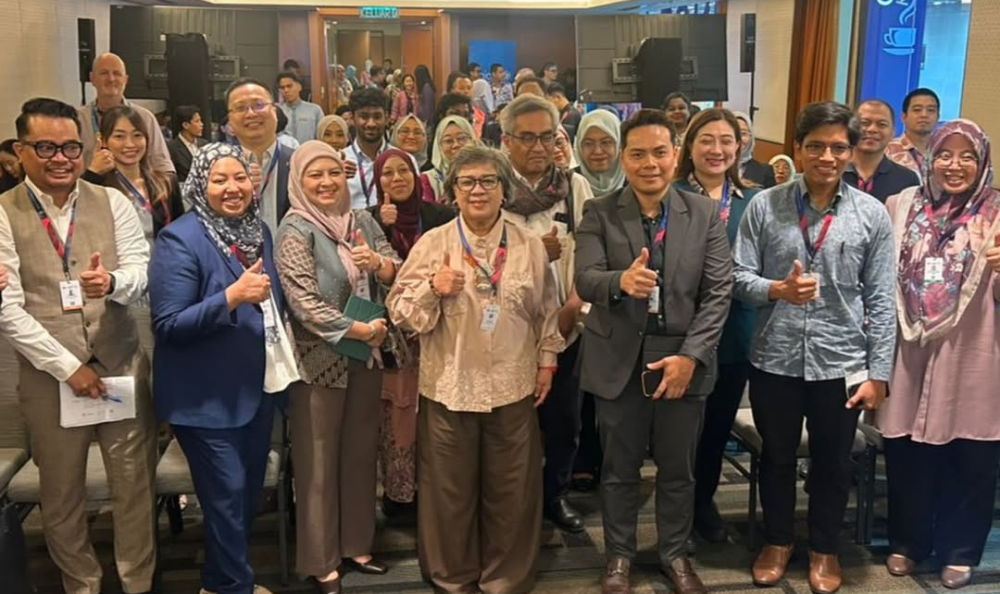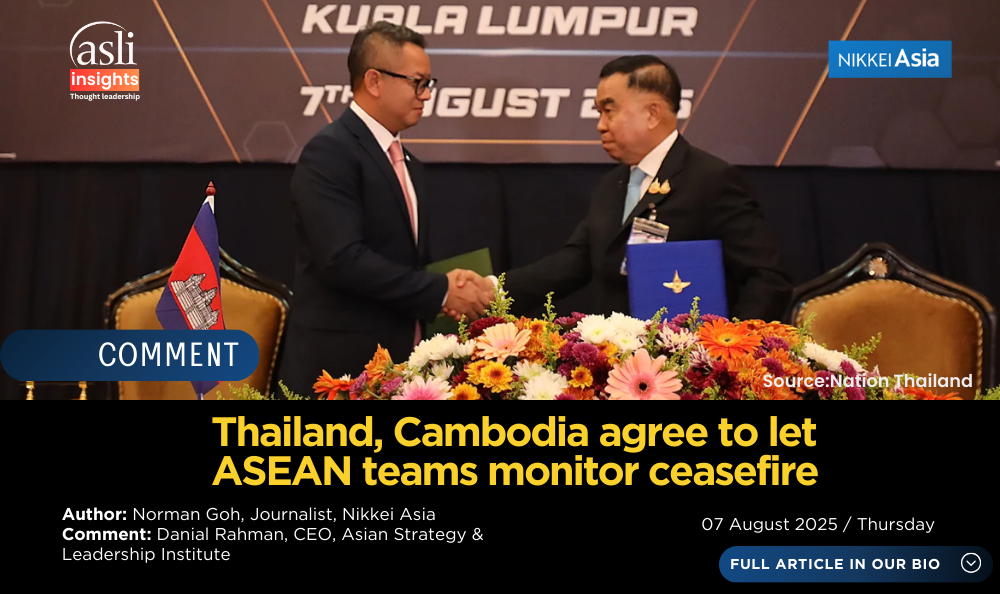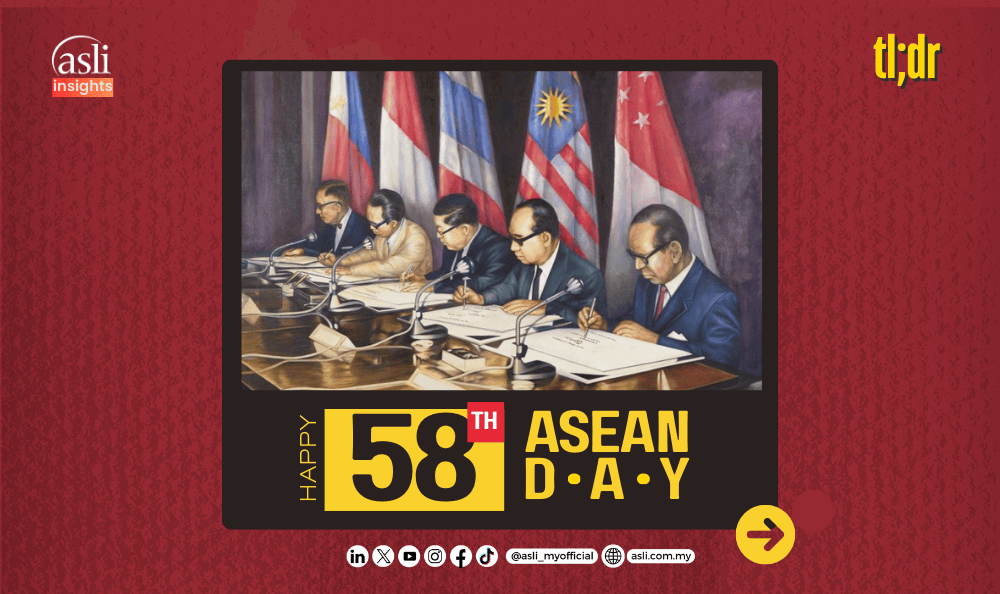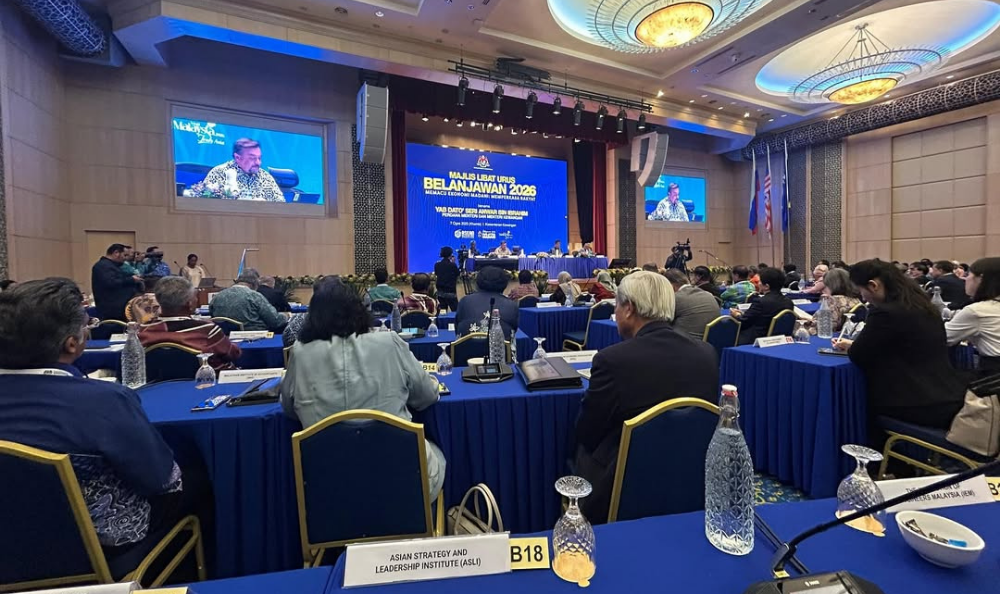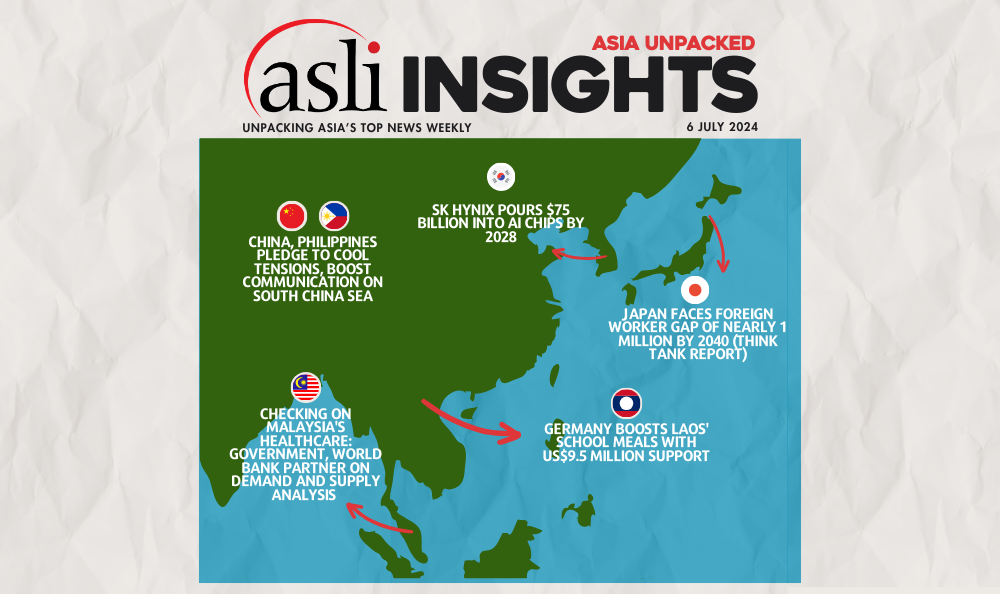
ASLI INSIGHTS: Asia Unpacked | 6 July 2024
ASLI is back with more ASLI INSIGHTS: Asia Unpacked!
Stay tuned for more top news in Asia handpicked by ASLI and for our curated weekly roundup!
This week’s Asia top news:
1) Checking on Malaysia’s Healthcare: Government, World Bank Partner on Demand and Supply Analysis
The Ministry of Health (MOH) is collaborating with the World Bank on a national health demand and supply study to comprehensively analyse Malaysia's healthcare system. Phase one will examine human resources, health facilities, and equipment, projecting the country's healthcare needs until 2045. This initiative aims to address resource distribution imbalances, setting national standards for key health assets to create a balanced, sustainable, and efficient healthcare system, essential for Malaysia's transition to a high-income nation. The ministry urges public and private healthcare stakeholders to participate in an online survey by July 15, ensuring the data remains confidential. Additionally, the ministry highlighted ongoing challenges such as manpower shortages and overcrowded facilities, noting a significant budget increase to RM41.2 billion for 2024 to address these issues.
Read more here:
- https://www.freemalaysiatoday.com/category/nation/2024/06/28/govt-world-bank-start-study-on-national-health-demand-and-supply/
- https://www.bernama.com/en/general/news.php?id=2312167
2) Japan Faces Foreign Worker Gap of Nearly 1 Million by 2040 (Think Tank Report)
Japan is projected to face a shortage of nearly one million foreign workers by 2040 to meet its economic growth targets, according to a state-backed think tank. The Japan International Cooperation Agency (JICA) estimates that the country will have 5.91 million foreign workers, falling short of the required number to sustain a 1.24% average annual growth rate. This gap has widened due to slower-than-expected economic growth in countries like Vietnam, Myanmar, and Cambodia. Foreign workers are crucial to Japan's economy, helping to fill severe labour shortages caused by a rapidly ageing population and declining birthrate. Despite expanding work visa permits, Japan must overcome challenges like a weakening yen, low wages, and human rights issues to attract and retain global talent.
Read more here:
3) China, Philippines Pledge to Cool Tensions, Boost Communication on South China Sea
China and the Philippines have recently engaged in the ‘Ninth Meeting of the Bilateral Consultation Mechanism on the South China Sea’, which was aimed at easing the sea tensions between them following a skirmish near the Second Thomas Shoal. The discussions, led by Chinese Vice-Foreign Minister Chen Xiaodong and Philippine counterpart Theresa Lazaro, were described as frank and constructive. Both sides agreed on the need to restore trust and confidence while acknowledging significant differences in their respective positions. Despite committing to de-escalating tensions, sovereignty disputes over areas, such as the Spratly Islands, remain ambiguous. The dialogue, which is part of a series that began in 2017, aims to foster maritime cooperation between the Philippines and China and peacefully address disagreements. However, long-term outcomes are uncertain due to the volatility of their relations.
Read more here:
- https://www.straitstimes.com/asia/se-asia/china-philippines-agree-to-lower-tensions-in-south-china-sea-boost-communications
- https://www.fmprc.gov.cn/mfa_eng/wjbxw/202407/t20240703_11446326.html
4) SK Hynix Pours $75 Billion into AI Chips by 2028
South Korean company SK Hynix announced their plan to invest $74.6 billion by 2028 towards its semiconductor production, with $58 billion used towards AI memory chips. The company aims to enhance its position in the competitive global chip market by building new manufacturing facilities and research centres. This significant investment underscores South Korea’s commitment to advancing semiconductor technology and addressing the growing global demand for AI-related applications. This is part of a broader strategy to secure a leading role in the evolving tech landscape, specifically in AI and semiconductor technologies
Read more here:
- https://www.reuters.com/technology/south-koreas-sk-hynix-invest-75-bln-by-2028-ai-chips-2024-06-30/
- https://www.bloomberg.com/news/articles/2024-06-30/sk-hynix-plans-to-invest-75-billion-on-chips-through-2028?embedded-checkout=true
5) Germany Boosts Laos’ School Meals with US$9.5 Million Support
The German government has pledged approximately US$9.5 million over five years to support a school meal program in Laos, benefiting 22,000 children across 200 schools in the southern provinces of Saravan, Xekong, and Attapeu. This initiative, led by Laos' Inclusive Education Development Centre, aims to enhance government capacities at all levels and develop a sustainable financing strategy for school meals. The programme, in partnership with the United Nations World Food Programme (WFP), seeks to link local farmers with schools to ensure a steady supply of fresh ingredients, thereby promoting rural poverty reduction and economic opportunities for farmers. The initiative emphasises reducing educational inequalities by boosting school enrolment, attendance, and learning outcomes. Additionally, it includes a strong gender component to empower women and promote climate-smart practices among farmers. German Ambassador Annette Knobloch and WFP Country Director Jacqueline de Groot highlighted the programme's alignment with broader efforts to transform food systems and strengthen human capital in Laos.
Read more here:
